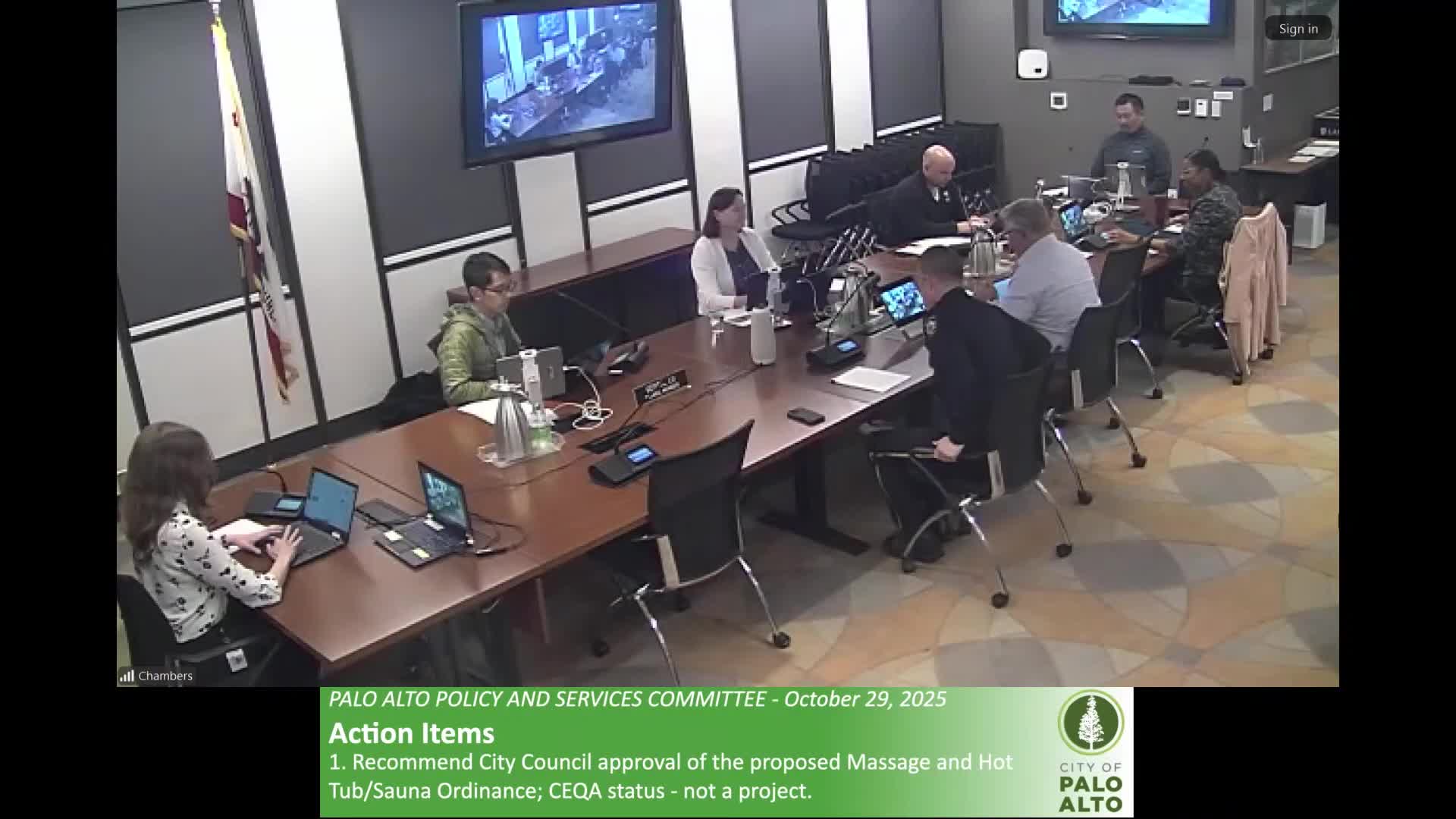Palo Alto committee backs ordinance aligning massage businesses with state rules, shifts permitting to owners
Get AI-powered insights, summaries, and transcripts
Subscribe
Summary
The Policy and Services Committee voted Oct. 29 to recommend that the City Council consider amendments to Title 4 of the Palo Alto Municipal Code that would strengthen oversight of commercial massage establishments and simplify hot tub sauna permitting.
The Policy and Services Committee voted Oct. 29 to recommend that the City Council consider amendments to Title 4 of the Palo Alto Municipal Code that would strengthen oversight of commercial massage establishments and simplify hot tub sauna permitting.
Eric Jensen, senior management analyst for the Police Department, told the committee the city's massage regulations have not been significantly updated since 2012 and the proposed changes would align local rules with "updated state standards and current best practices." Jensen said the proposal would classify regulated activity into three categories: massage establishments (owners), massage professionals, and hot tub saunas.
The revisions would require an enhanced annual permit for establishments that includes verification of ownership changes and would place "the burden for compliance" primarily on owners rather than individual practitioners, Jensen said. He told the committee that, under the proposal, massage professionals must be certified by the California Massage Therapy Council (CAMTC); staff reported that all but one of the roughly 150 massage professionals working in Palo Alto already hold CAMTC certification. Jensen said the city would discontinue an extensive city permit for hot tub saunas and instead rely on Santa Clara County Health Department permitting and inspection to authorize those businesses.
The presentation included context on the California Massage Therapy Act of 2008 and CAMTC's role. Jensen described CAMTC as a private nonprofit public-benefit corporation created to provide a pathway for self-regulation and to raise standards for the profession; he also noted AB 1504 was pending in the state Legislature and could change CAMTC board composition.
Committee members asked staff whether the reforms respond to identified prostitution or human trafficking cases in Palo Alto. Jensen said the city has not had criminal cases locally tied to trafficking through these businesses but acknowledged that massage establishments are "one of the industries" where trafficking concerns can arise. Council members described the update as a preventative measure that also streamlines which city offices handle permitting and compliance.
Members asked about access barriers from the CAMTC requirements, including a 500-hour education threshold, a roughly $300 fee every two years and a LiveScan fingerprint background check. Jensen said in practice the city has not seen widespread exclusion: "All but one chose the state route," he said, and that remaining practitioner is transitioning to CAMTC certification with staff assistance.
Jensen recommended forwarding the ordinance to the City Council for first reading on the consent calendar. A committee member moved that the proposed revisions be forwarded to City Council; another member seconded. The committee called the roll and recorded unanimous support; the motion carried.
What happens next
Staff will take committee feedback and, if unchanged, forward the ordinance package to the City Council for first reading per the committee's recommendation. The presentation thanked the Santa Clara County Human Trafficking Task Force, CAMTC staff and Sunnyvale staff for assistance with the code changes.
